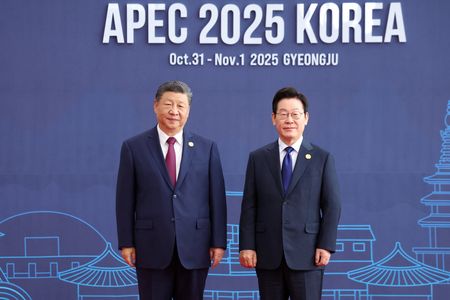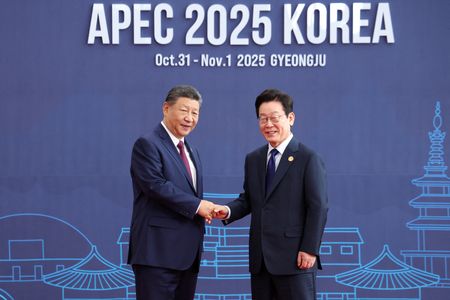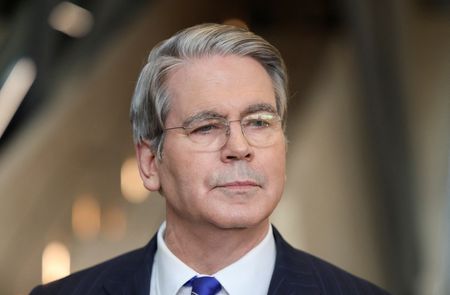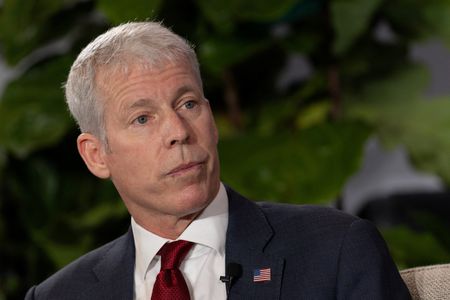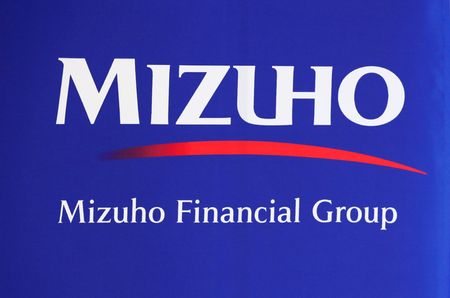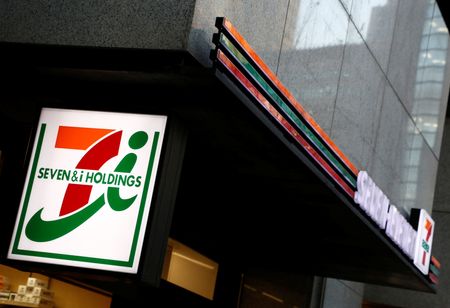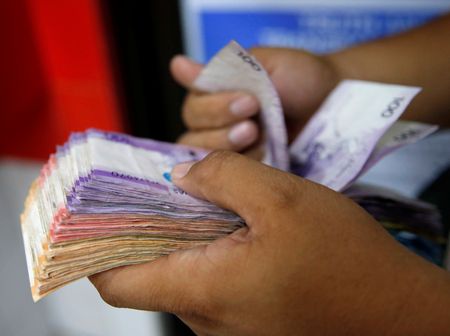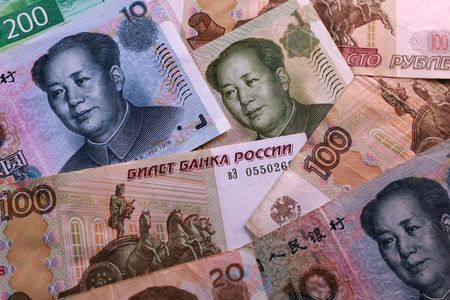GYEONGJU, South Korea (Reuters) -South Korean President Lee Jae Myung will sit down with Chinese President Xi Jinping for talks on Saturday, marking the first bilateral summit between the leaders and the first visit by Xi to his Asian neighbour in more than a decade.
The pair will meet on the sidelines of the Asia-Pacific Economic Cooperation summit in the city of Gyeongju and the meeting comes after a period marked at times by strained ties between Beijing and Seoul, which is a key U.S. ally.
Following are some of the issues that may be discussed:
TRADE
China is South Korea’s largest trading partner and Seoul regards Beijing as a key force for stabilising supply chains, Lee said in a recent interview.
South Korea has been concerned about the impact of China’s controls on rare earth exports, which have alarmed industries ranging from electric vehicles to petrochemical products.
China also recently announced sanctions on five U.S.-tied units of South Korean shipbuilder Hanwha Ocean, citing security risks stemming from their involvement in the U.S. government’s “relevant investigative activities.”
The move sparked warnings from officials in Seoul that it could impact ambitious plans for shipbuilding cooperation between Seoul and Washington under a trade deal by disrupting supplies of Chinese equipment and materials.
NORTH KOREA
Lee will discuss the denuclearisation of the Korean peninsula at the summit with Xi, Lee’s office said on Friday.
Seoul has become increasingly worried that the international commitment to pressure Pyongyang to give up its nuclear programme has been fraying.
North Korean leader Kim Jong Un visited Beijing in September to attend a military parade along with other mostly non-Western leaders, including Russia’s Vladimir Putin.
Lee called on U.S. President Donald Trump this week to allow South Korea to possess fuel for a nuclear-powered submarine.
After their summit, Trump said he had given approval for South Korea to build such a vessel in the United States.
In response, China said it hoped South Korea and the U.S. “will earnestly fulfil their nuclear non-proliferation obligations and do things to promote regional peace and stability.”
TERRITORIAL FRICTION
In April, South Korea expressed concern over China erecting a sea structure in a disputed area of sea between the two countries.
The structure placed in the Yellow Sea, known as the West Sea in South Korea, has raised concerns in Seoul that China could be seeking to claim territory in an area where their exclusive economic zones overlap.
China had said that the structure was fish-farming equipment and had nothing to do with territorial rights.
K-POP BAN
Seoul is hoping that Xi’s visit may lead to Beijing relaxing years-long restrictions on South Korean entertainment content.
Beijing has effectively banned K-pop imports amid tension over a U.S.-led Terminal High Altitude Area Defense (THAAD) missile defence system that was deployed in South Korea in 2017.
In a move to stimulate cultural cooperation, the Lee administration relaxed visa policies for tourist groups from China until June 2026. China also introduced a visa-free policy for South Korean tourists by the end of 2025.
(Reporting by Heejin KimEditing by Ed Davies and Raju Gopalakrishnan)

